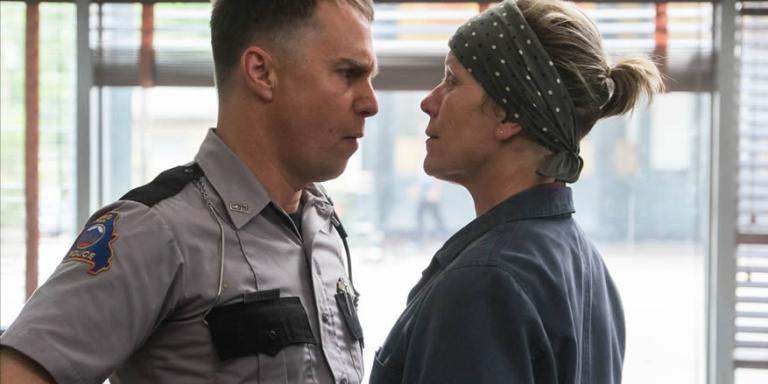
The night her daughter, Angela, was killed, she and Mildred fought, culminating in Mildred’s refusal to let Angela use the car. We see the scene unfold in flashback:
“Why don’t you just walk, Angela?” Mildred hollers. “Why don’t you just walk?”
“You know what? I will walk,” Angela says. “I will walk. And y’know what? I hope I get raped on the way!”
“Yeah?” Mildred hollers after her. “Well, I hope you get raped on the way, too!”
Behind Mildred’s rage is grief and shame and indescribable pain. Yes, her anger is righteous—as righteous as it comes. But it’s wild, too, lashing out like a rabid dog, biting everything and everyone. Abercrombie, Willoughby’s replacement, tries to tell her as much. “We ain’t all the enemy, you know?”
But she doesn’t. She can’t see the enemy clearly, and so the whole world becomes hers. She’s not alone in her anger: The town is wrapped in a ball of fury, the fire burning and building like an act of nuclear fission, self-perpetuating and unstoppable.
This movie isn’t about rage: It’s about pain, and about how those in pain can do inconceivable things to each other.
But you know what else it’s about? Forgiveness. Kindness. Love.












